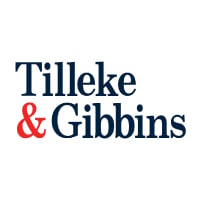

General counsel | Grabtaxi Thailand






Wanchanit Sa-Nguanwong
General counsel | Grabtaxi Thailand
Team size: Five
What are the most significant cases, projects or transactions that you or your legal team have recently been involved in?
As Grab Thailand’s first legal counsel, the enactment of the Ministerial Regulation on Transport Vehicles via Electronic System B.E. 2564, which officially legalized ride-hailing services, represents a landmark achievement and a cornerstone of my professional journey. This legislative milestone fundamentally reshaped the paradigm of public transportation within Thailand, introducing a completely new service model and challenging established norms. The emergence of this disruptive business model presented a unique and complex legal challenge: how to reconcile the innovative ambitions and operational necessities of a tech-driven company with the paramount duty of serving the broader public interest. This challenge was further amplified by the pre-existing regulatory structure, which was not designed to accommodate the intricacies and nuances of the burgeoning technological and digital economy.
To effectively address the regulatory gap and forge a path towards legalization, I initiated and cultivated collaborative relationships with a diverse range of pertinent regulatory authorities and key stakeholders across various sectors, including government agencies, transportation industry representatives, consumer advocacy groups, and technology experts. Recognizing the novelty and complexity of the legal issues at hand, I also engaged external legal counsel specializing in technology and transportation laws to provide expert guidance and ensure a robust legal strategy.
The overarching objective of this collaborative approach was to identify a balanced regulatory framework that would simultaneously facilitate the advancement of Grab’s business interests and ensure comprehensive regulatory compliance. This framework needed to be pragmatic and adaptable, capable of accommodating the dynamic nature of the technology while upholding principles of fairness and equity for all affected parties. While acknowledging the potential adjustments and impacts on traditional transportation providers, the central focus remained on highlighting the substantial opportunities afforded to a wider range of Grab’s users (which are drivers and consumers), ultimately leading to an enhancement of their overall quality of life.
How do you approach managing legal aspects during periods of instability or crisis to ensure the organisation’s resilience?
The primary KPI for the Grab Thailand legal team is to safeguard the interests of the company and its leadership. This is achieved by providing management and stakeholders with comprehensive analyses of both the potential benefits and associated risks, thereby enabling informed and optimised decision-making.
In practice, this objective presents a number of challenges, as we often operate under multiple constraints including public sentiment, organisational targets, tight timelines, and complex regulatory environments. During times of crisis, the legal team must consider not only regulatory compliance but also public perception, the expectations of regulators, and the broader impact on all stakeholders, including the company’s reputation. Neglecting any of these elements could result in legally defensible actions that nonetheless harm the company’s public image if stakeholder interests are not adequately considered. For instance, when considering the exercise of contractual rights that could negatively affect stakeholders, our legal guidance must go beyond merely asserting legal entitlements. Instead, we must present a holistic approach that incorporates commercial, reputational, and stakeholder-related factors, allowing management to make fully informed decisions.
There is no one-size-fits-all approach for ensuring business continuity while navigating regulatory expectations and achieving compliance. The development of a risk-weighted approach is an ongoing process that requires continual refinement. It is essential that legal counsel remains open-minded and develops a deep understanding of the business, the regulatory environment, and evolving industry trends. Only then can legal professionals function not merely as interpreters of legal provisions, but as trusted thought partners to the organisation’s leadership and stakeholders.
What do you think are the most important attributes for a modern in-house counsel to possess?
In today’s rapidly evolving business landscape, a modern in-house counsel must possess a combination of technical expertise, strategic insight, and strong interpersonal skills. Firstly, analytical legal skills and strategic thinking are fundamental. An effective in-house counsel must be able to tailor legal solutions to support business continuity while ensuring regulatory compliance and effectively managing the expectations of regulators. Secondly, a genuine eagerness to learn and a deep understanding of the business are crucial. In-house lawyers must cultivate a holistic view of the organisation in order to offer advice that is both practical and aligned with commercial objectives. Thirdly, the ability to manage stakeholder expectations and understand diverse audiences is essential. This involves recognising and addressing the distinct concerns of internal and external stakeholders—including regulators, investors, and customers—within a complex and ever-changing environment. Providing realistic solutions alongside clear explanations of legal implications enhances the decision-making process for stakeholders.
Finally, empathy and collaboration are key traits. Understanding the pressures faced by business stakeholders enables legal counsel to propose workable solutions, foster collaboration, and promote the proactive involvement of Legal in business initiatives, thereby helping to prevent issues of non-compliance.
Based on your experiences in the past year, are there any trends in the legal or business world that you are keeping an eye on that you think other in-house lawyers should be mindful of?
One of the most significant trends I have observed over the past year is the growing importance and scrutiny of the Gig Economy, particularly the role of riders, who are central to the growth of digital platforms. The rise of the digital economy has given birth to a new service segment that reflects freelance characteristics and challenges traditional employment models. This evolving landscape raises several important legal and regulatory questions. Firstly, what is the most appropriate regulatory framework for the Gig Economy, given its hybrid nature, blending elements of both employment and freelance work? Secondly, how can we design fair and practical regulations that consider the interests of all stakeholders, including service platforms and consumers?
A further challenge lies in crafting legislation that balances the protection of rider benefits with the need to support business continuity—an essential factor for national economic development. Additionally, there is a need for effective collaboration between regulators and digital platform providers to develop regulatory frameworks that are both efficient and adaptable to dynamic business models. The aim is to avoid stifling innovation or economic progress, while maintaining robust legal and regulatory compliance. In-house lawyers must remain attentive to these developments, not only from a compliance perspective but also in order to contribute meaningfully to public discourse and policy shaping in this increasingly relevant sector.